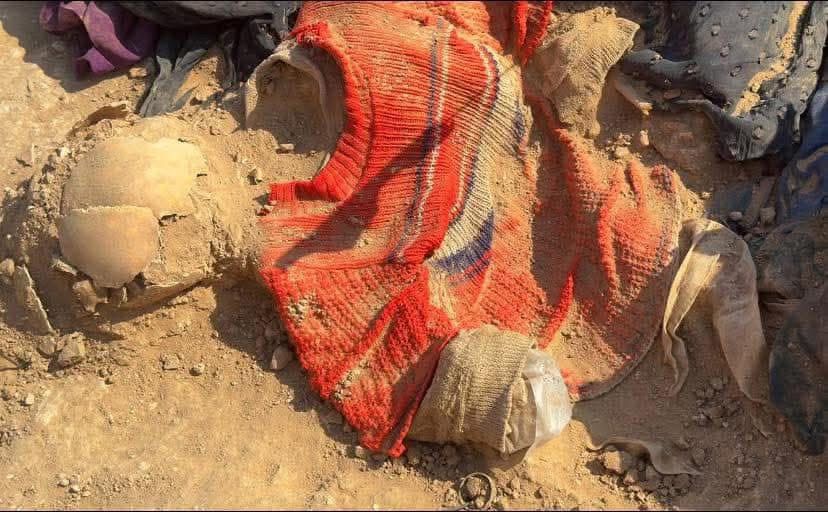The rediscovery of two mass graves containing innocent Kurdish women and children in the Iraqi desert demonstrates the brutality of the
On December 22, 2024, several mass graves were discovered in the Tel Shekhiya area of Samawa province. It is estimated that approximately 150 Kurdish women and children were massacred in the latest mass grave in Samawa, with about 60 remains recovered so far. The Iraqi Directorate of Mass Graves attributes the slow recovery of remains to the small size of the grave and the fact that mothers were embracing their children, causing their bones to be intermingled and making the extraction work very complex and difficult. So far, 2,551 remains have been returned to the Kurdistan Region in 11 phases.
Regarding this, Shwan Kalari, a member of the Martyrs and Political Prisoners Committee in the Iraqi Parliament who lost 48 family members, told Kurdish Globe: “These graves were discovered in (Tel Shekha Wadi Samawa), and their source traces back to an Anfal survivor named (Taymur), known as ‘Taymur of Anfal’, who miraculously survived the mass execution. Taymur identified these graves in 2007. After the executions, he had walked through the desert and found shelter with an Arab family who raised livestock. This family took care of him and sent him back after the uprising. Taymur went back to the location of the tent where that family had sheltered him and from there was able to locate the graves. In 2019, about 172 remains were extracted, and this year two more graves have been uncovered, with a third remaining and more graves existing both in this location and in the Nugra Salman fortress in Samawa province.
The parliamentarian revealed that there are errors in the excavation and medical examination procedures, stating that it’s inappropriate to excavate two or three adjacent graves within one or two months because the Mass Graves Department and forensic medicine are being negligent. He filed a complaint with the public prosecutor because they plan to excavate another grave after 6 years, which he sees as unnecessary delay. According to Decision No. 13 of 2015 regarding the protection of mass graves, Iraqi forensic medicine must examine both the bones and take blood samples from Anfal victims’ relatives, but regrettably, not a single DNA test has been reported yet.
Regarding the mechanism for returning these remains, Shwan Kalari revealed that after being kept in forensic refrigeration for 5 years without justification, the remains were handed over to the Kurdistan Regional Government in a non-protokol manner. The proper procedure should have involved both governments, through their respective Ministries of Martyrs and both the Iraqi and Kurdistan Region Council of Ministers’ presidencies, conducting appropriate ceremonies for the return of these remains. However, unfortunately, these remains were carelessly handed over to the local administration of Kurdistan Region’s provinces.
He also said: “From a moral standpoint, all 8 phases of the Anfal process were genocide, whether it was against the Barzanis, the Faylis, or the Anfal of Germian. This is the genocide of a people – it’s not just limited to the victims’ families, it’s the grief of an entire people, of a nation.”

